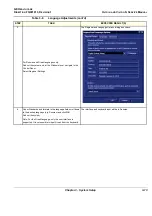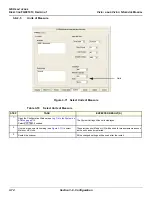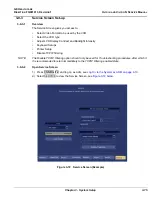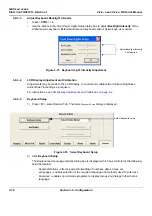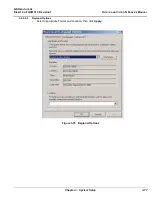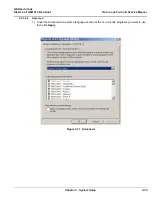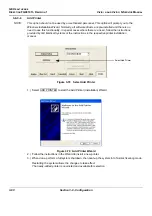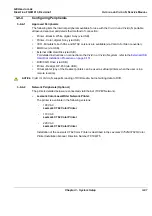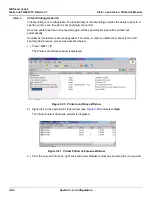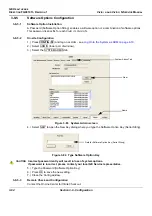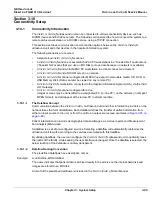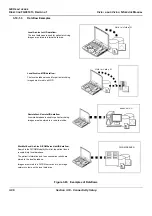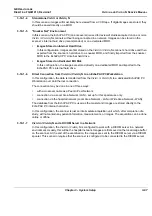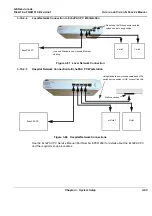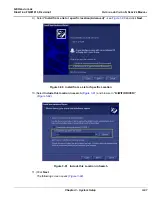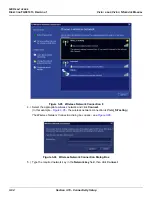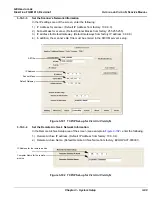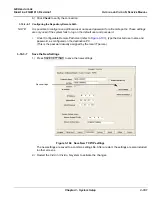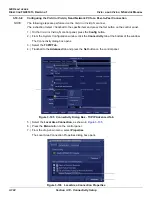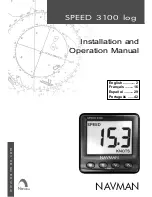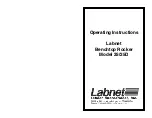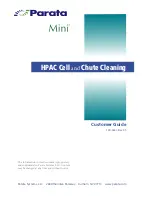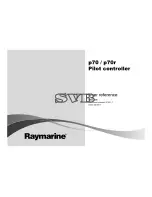
GE H
EALTHCARE
D
IRECTION
FQ091013, R
EVISION
1
V
IVID
I
N
AND
V
IVID
Q
N S
ERVICE
M
ANUAL
Chapter 3 - System Setup
3-87
3-10-1-4
Stand-alone Vivid
i
n/ Vivid q N
In this scenario, images will most likely be reviewed from a VCR tape. If digital images are stored, they
should be saved directly on a MOD.
3-10-1-5
“Sneaker Net” Environment
In this scenario, the EchoPAC PC (one or several) is used for review of studies acquired on one or more
Vivid
i
n/ Vivid q N scanners without being connected in a network. Images can be stored on the
scanner’s internal hard drive (recommended) or on a dedicated MOD.
•
Images Stored on Internal Hard Drive
In this configuration, images are first stored on the Vivid
i
n/ Vivid q N scanner’s hard drive and then
exported from the scanner’s hard drive to a sneaker MOD, and finally imported from the sneaker
MOD to the EchoPAC PC’s internal hard drive.
•
Images Stored on Dedicated MO Disk
In this configuration, the images are stored directly on a dedicated MOD and imported to the
EchoPAC PC’s internal hard drive.
3-10-1-6
Direct Connection from Vivid
i
n/ Vivid q N to an EchoPAC PC Workstation
In this configuration, the data is transferred from the Vivid
i
n/ Vivid q N to a dedicated EchoPAC PC
Workstation over an Ethernet connection.
The connection may be done in one of three ways:
•
with a crossover cable as a Peer-to-Peer Network
•
connection via a Local Area Network (LAN) - set up for this special use only.
•
connection via the hospital network (Local Area Network - LAN or Wide Area Network - WAN)
The database from the EchoPAC PC is used as the master and images are stored directly to the
EchoPAC PC internal hard drive.
In this configuration, the scanner is just an intermediate acquisition unit which, after completion of a
study, will not contain any patient information, measurements, or images. The acquisition can be done
online or offline.
3-10-1-7
Vivid
i
n/ Vivid q N and a DICOM Server in a Network
In this configuration, the Vivid
i
n/ Vivid q N is configured to work with a DICOM server in a network
environment. Usually, this will be the hospital network. Images are first saved on the local image buffer
on the scanner. At the end of the examination, the images are sent to the DICOM server via a DICOM
spooler. This scenario requires that the scanner is configured to be connected to the DICOM server.
Summary of Contents for FL000090
Page 2: ......
Page 30: ...GE HEALTHCARE DIRECTION FQ091013 REVISION 1 VIVID I N AND VIVID Q N SERVICE MANUAL xxviii ...
Page 739: ......

